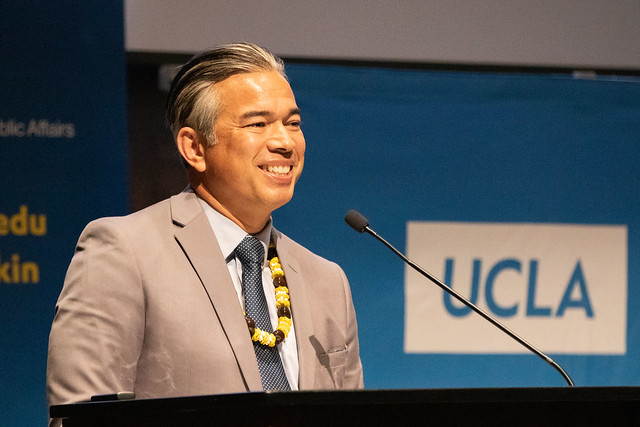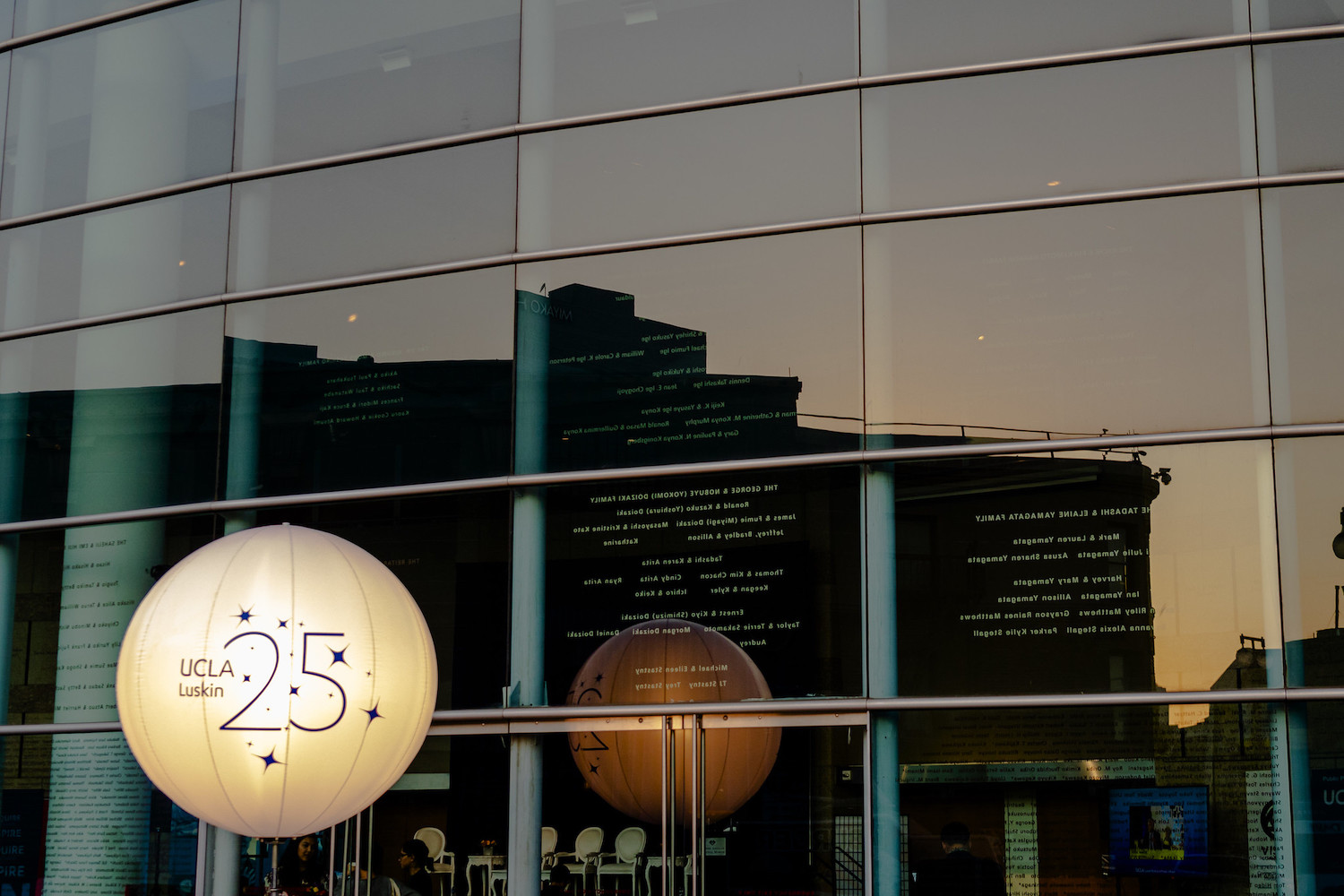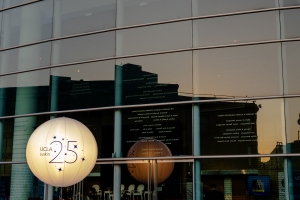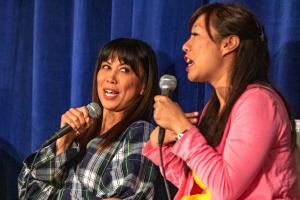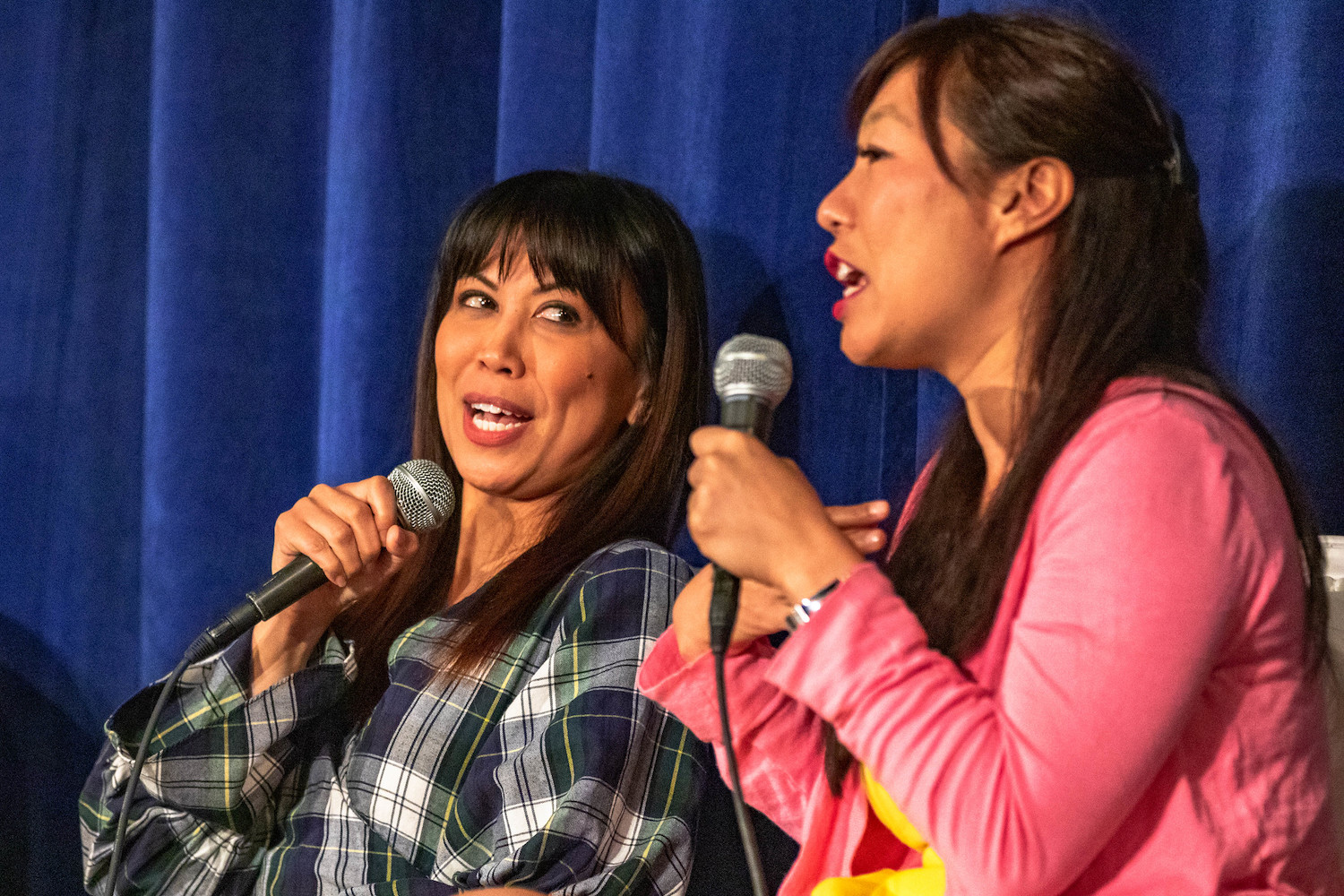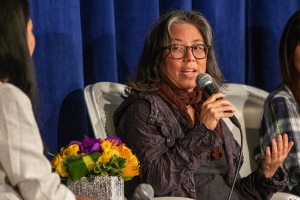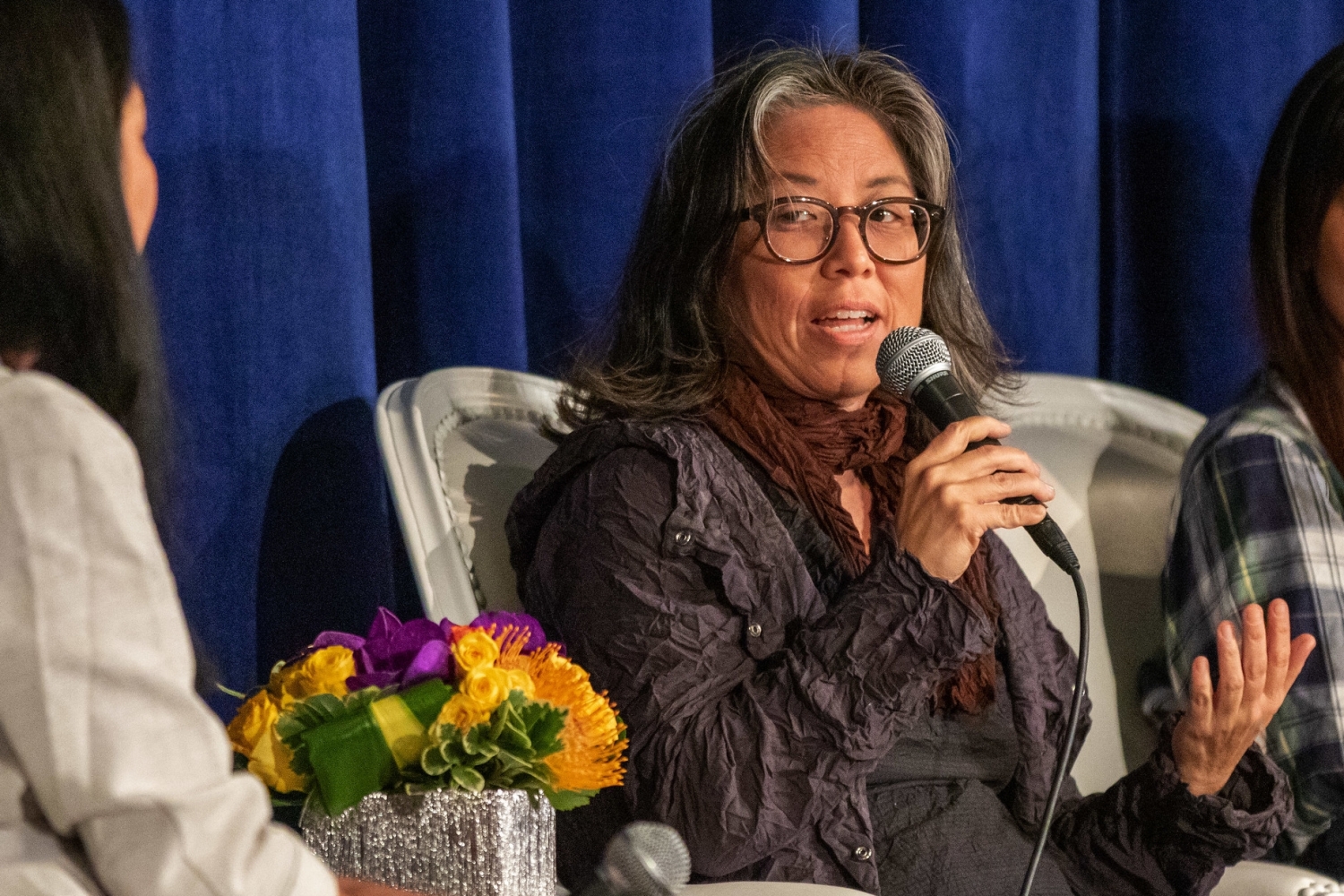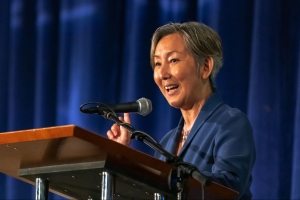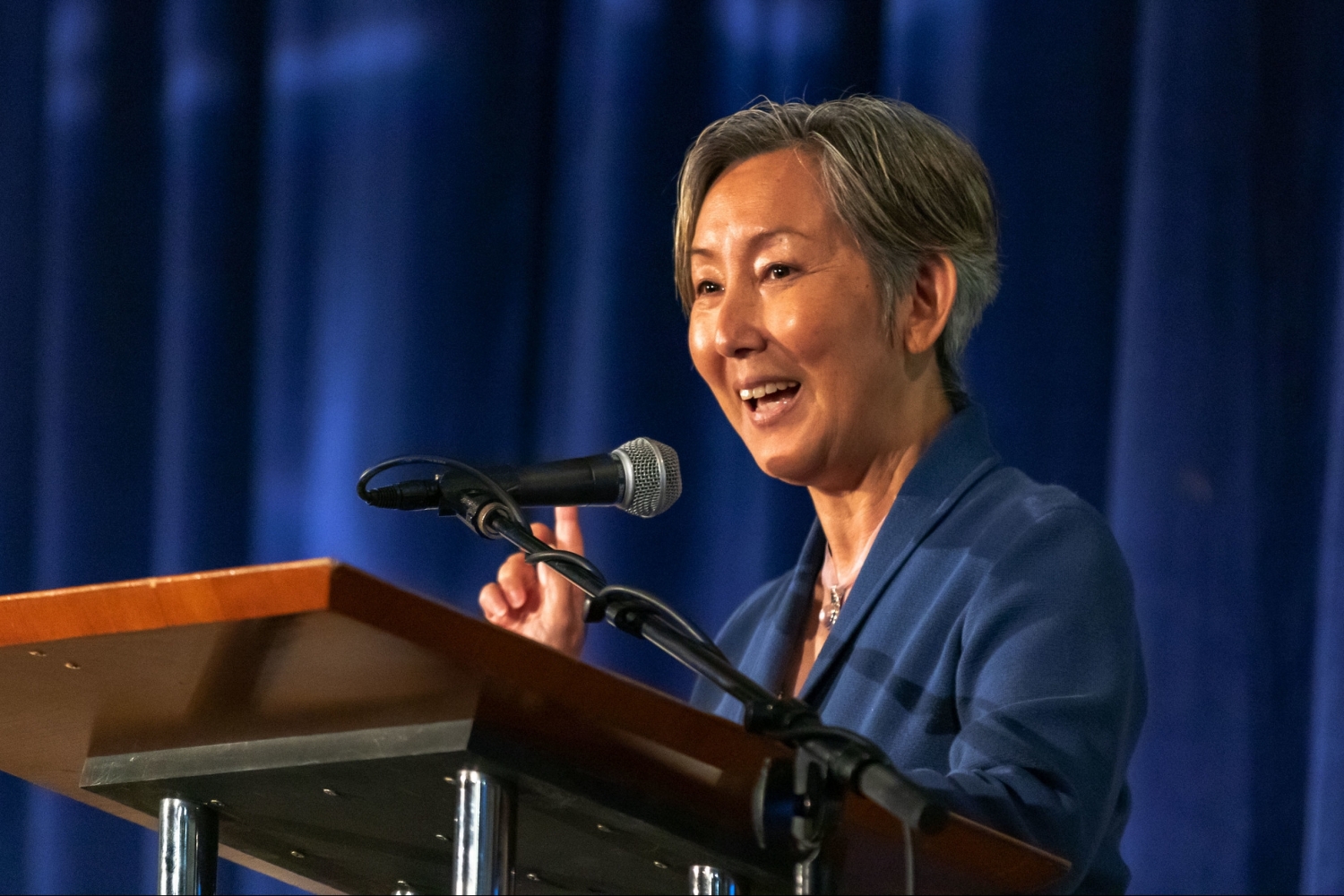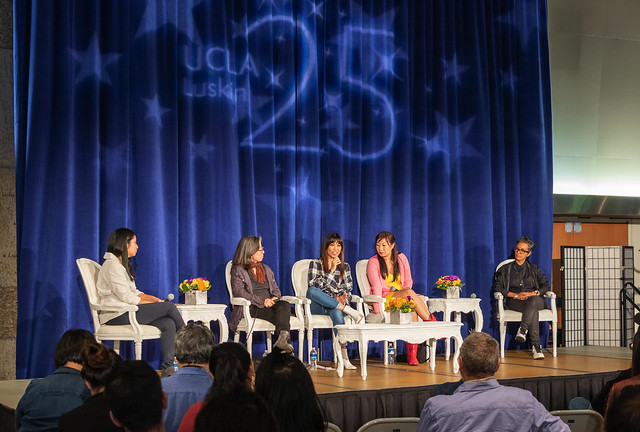By Stan Paul
Paul Ong and Donald Shoup, research professors at the UCLA Luskin School of Public Affairs, have been honored for their decades of outstanding research and teaching and for their exemplary service to UCLA since retirement.
Ong is the recipient of the 2020-21 Carole E. Goldberg Emeriti Service Award, and Shoup is the winner of this year’s Edward A. Dickson Emeritus Professorship Award.
“Congratulations to Paul Ong and Don Shoup who are both deserving of this honor,” said UCLA Luskin Dean Gary Segura. “These two leaders and thinkers contribute mightily to making communities and neighborhoods healthier, more functional and more equitable. They fully represent the spirit of the School, and we take tremendous pride in their achievements.”
About Ong’s award
Ong retired in 2017 but has continued his research while serving as director of the UCLA Center for Neighborhood Knowledge. The award, established in 2015, recognizes emeriti for exemplary service to the university and their department and includes a prize of $1,000. Ong was cited for his more than three decades of interdisciplinary social science teaching, policy-focused applied research and engagement with the community, as well as his interactions with policymakers to enable significant change.
The nomination for the award was supported by numerous recommendations from UCLA colleagues, including Professor Chris Tilly, chair of UCLA Luskin Urban Planning, who noted Ong’s continuing dedication to post-retirement service.
“What makes his service truly extraordinary, and extraordinarily timely, is the Herculean effort he has undertaken over the last two years to generate an astounding volume of actionable research addressing the two crises that have convulsed this country in 2020 and 2021: the COVID-19 crisis and the longstanding crisis of racial injustice that flared into mass activism in 2020,” Tilly wrote in his letter of recommendation.
Tilly said that the resulting stream of policy-focused applied research provided a “tremendous service to Los Angeles and other California communities, and by extension to other communities across the nation wrestling with these issues.”
He noted that Ong’s work and collaborations have helped position the university as a major contributor to understanding while “facing the greatest challenges of this very challenging time.”
Announcing the award was the chair of the awards committee, UCLA Vice Chancellor for Academic Personnel Michael S. Levine. He said of Ong: “He is an extraordinary builder of intellectual relationships, transforming empirical research into critical policy discussions in local, state and national venues.”
“In retirement, this advocacy continued and Professor Ong’s commitment to research-as-service came to a fulcrum during the span of the pandemic with actionable policy research addressing the twin crises of the coronavirus and racial injustice,” Levine said.
He noted that city officials in Los Angeles and medical professionals at UCLA Health drew on Ong’s research when creating COVID-19 vaccine equity guidelines.
Tilly called attention to 28 policy-relevant reports spotlighting the disparate impacts of COVID-19 on various racial and ethnic groups published by Ong since the pandemic began in 2020, mostly issued under the auspices of the Center for Neighborhood Knowledge in collaboration with other UCLA units.
Ong’s research collaborators have included the Latino Policy and Politics Initiative, the Asian American Studies Center, the School of Education and Information Studies, the Ziman Center for Real Estate, the BRITE Center and the UCLA Center for Health Policy Research, among others.
“Throughout his career, Dr. Ong has been an engaged scholar par excellence, and this latest chapter has taken that engagement to a new level,” Tilly said.
Ong was one of two awardees for 2020-21. Also honored was Josephine B. Isabel-Jones, professor emerita of pediatrics. They join UCLA’s list of outstanding past awardees.
About Shoup’s award
Shoup, who retired in 2015, was chosen among a select group of UCLA scholars that include Distinguished Researcher Professor Emeritus Benjamin Bonavida of the department of Microbiology, Immunology and Molecular Genetics and Professor Emeritus Warwick Peacock of the department of Neurosurgery. Each will receive a $5,000 prize from a gift endowment established by the late Edward A. Dickson, a regent of the University of California.
Levine noted that since retirement Shoup has received numerous awards and accolades, including being named a National Planning Pioneer by the American Planning Association (APA). In 2017, he received the American Collegiate Schools of Planning’s Distinguished Educator Award, and in 2019 his landmark publication, “The High Cost of Free Parking,” was listed by the APA as a key timeline event since 1900 in the field of urban planning. The 2005 book has since been translated into other languages that include Russian, Chinese, Persian and Romanian.
Shoup followed up in 2018 with the publication of “Parking and the City,” which examined case studies of parking policies recommended in 2005 and outcomes in cities across the world that adopted those policies.
“Shoup is considered the world’s leading academic expert on policies, planning, travel impacts, environmental and social dimensions of parking,” Levine noted, pointing out that his analyses have led to policy changes adopted in various cities and have been emulated throughout Europe and Asia.
Shoup also was nominated and supported by colleagues including the late Marty Wachs, who passed away earlier this year.
“Professor Shoup has lived up to one of the early mottos of the Department of Urban Planning: ‘Linking Knowledge to Action,’” Wachs wrote in his nomination letter. He added, “In addition to scholarly writings addressing parking policy, Donald Shoup for decades advocated for public policies that reflected what he had learned from his research on parking.”
Wachs cited Shoup’s continued scholarship, teaching, mentoring, publishing and advocating on parking and other planning issues of public importance.
“Donald Shoup’s scholarship and advocacy related to parking are examples of what can be achieved when a strong background in the field of economics, meticulous empirical research and decades of attention to detail are combined and brought to the field of public policy and urban planning,” Wachs wrote.
Also supporting Shoup’s nomination was colleague Brian Taylor, professor of urban planning and public policy and the director of the Institute of Transportation Studies at UCLA.
“In addition to his ongoing research, Professor Shoup remains a committed teacher and UCLA ambassador to the present day,” Taylor said. “In sum, UCLA Distinguished Professor Emeritus Donald Shoup continues to be a renowned and prominent scholar of land use planning, transportation policy, land development and local public finance; a talented and popular teacher; and an exceptionally influential contributor to public policy and planning practice.”
